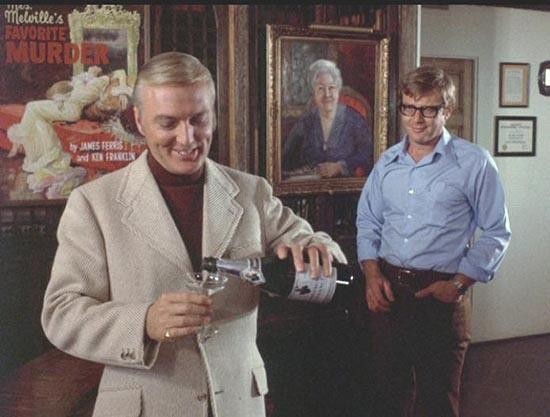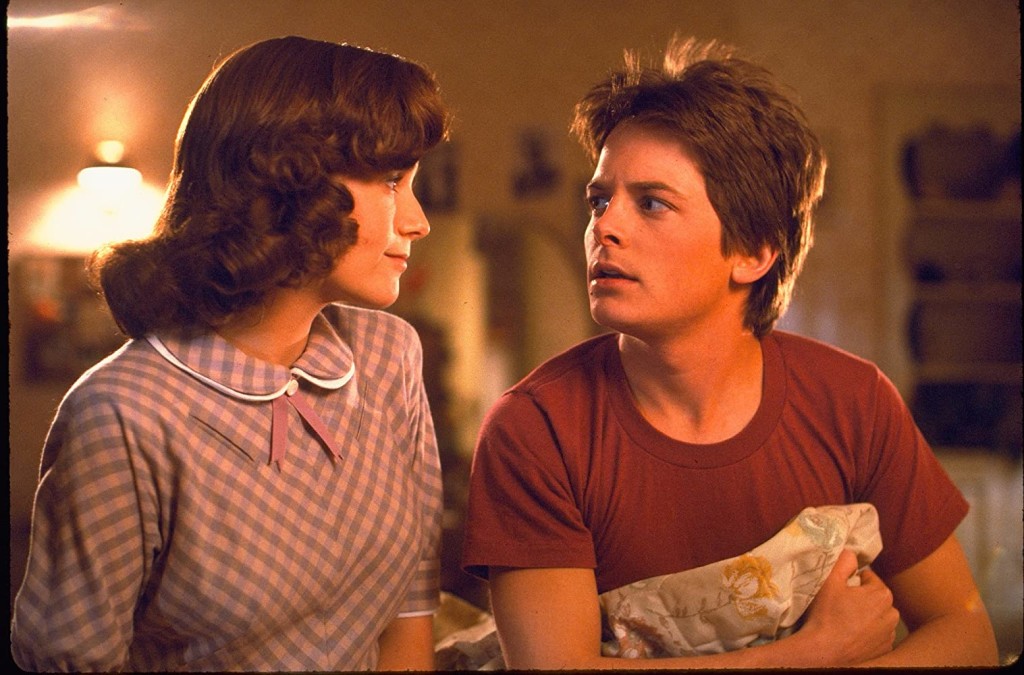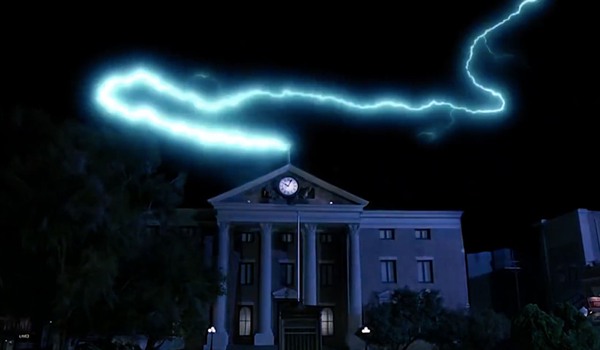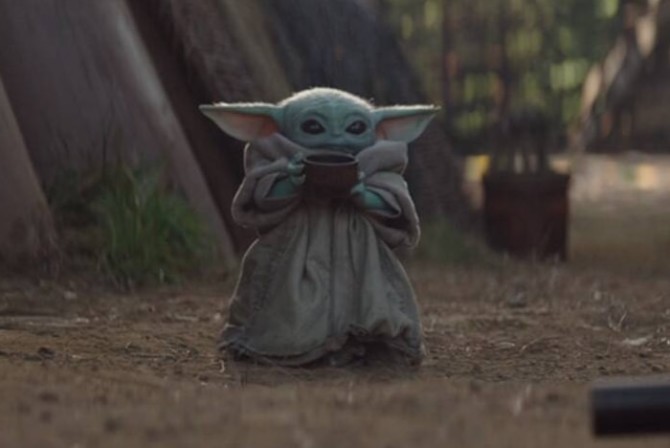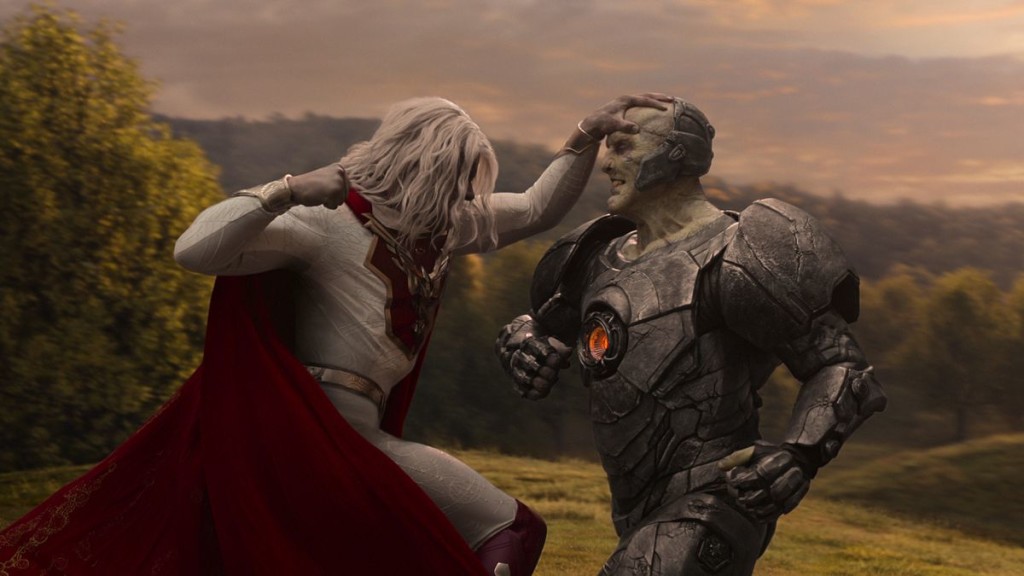Hollywood’s crusade to make it impossible to know when and where any TV show or movie is debuting continues. Apparently, Army of the Dead came out this weekend. If you’re like me, you were under the impression that Army of the Dead was a Netflix movie. You were also under the impression that Netflix movies debut on… Netflix. But not Army of the Dead, apparently. Army of the Dead debuted in theaters instead of on the service that produced it. Confused? When they said ‘streaming wars’ I didn’t know that the war was against us.
HBO Max isn’t doing much better. I was shocked when I opened the app this weekend and saw… “Those Who Wish Me Dead.” I had no indication that this movie was coming out. It appeared out of nowhere, as if by magic. Some people may think this is cool. But there’s a psychological component to dropping movies on audiences out of nowhere. They think the movie must be bad because they’ve been conditioned to believe that big important movies are hyped up beforehand.
Netflix, which drops movies out of nowhere all the time, arguably changed this belief. But now Netflix is debuting movies in theaters! So what the hell is going on?? And as long as I’m ranting about streaming, I finally canceled my Apple TV+ subscription. They didn’t have a single show or movie I’d rate above a “wasn’t for me.” The whole reason I got the subscription was for that cool looking sci-fi show, Foundation. It’s been two years and I’m still waiting for the first episode!
Luckily, we’re finally about to get real movies back. In two weeks, A Quiet Place 2 hits theaters. I’m definitely going to see that. And then a week later, I believe, Fast and Furious 9 drops. So I’ll be seeing that as well. I can’t remember the last time I went to the theater two consecutive weeks in a row. I can’t wait!
About a week ago, I told you guys that, in June, the CIA is going to be releasing a lot of UFO documents. The reason this is happening, strangely enough, is that some congressman slipped it into the last Covid Relief bill that the government had to do this. Not sure what aliens have to do with Covid but I’ll take it.
The CIA releases documents like this every few years and they’re always disappointing as they cover peripheral mundane UFO events that have zero value to the community. For example, in 1978, Popular Mechanics may have called the government for a question about a UFO article they were going to run. So the CIA releases the letter that the government official wrote to their boss. “Hey, Popular Mechanics wants us to comment on some UFO story. Would you like to get back to them or should I?” It’s maddening how unimportant the documents they choose to release are.
However, the rumor is that, this time, they’re going to be a little more forthright – that there may be a couple of videos that are better than anything we’ve seen before. I’ll believe it when I see it because stuff like the video below aren’t good enough.
This is the current video everyone’s jazzed about. But come on. It’s a black dot. I undertand that this was taken in the dead of night and the only way to record it was with infrared. But everybody seems to think it’s amazing that the UFO goes into the water. WOOOOWWWWWWW! It went it to the water!? Wow. I’ve never seen any piece of machinery fall into water before. Wow. Stuff like this isn’t going to cut it if UFOs are ever truly going to cross into the mainstream. So I’m hoping they release something good for once.
The reason I bring up UFOs is because HBO Max just optioned Leslie Kean’s bestselling non-fiction book, “UFOS,” for Bryce Kass to script. Kass’s credits are kind of lean. But he was hired by George Clooney to adapt the Norwegian film, Pioneer, about a man working on an oil pipeline investigating his brother’s death.
I’ve read “UFOs.” Kean takes a neutral look at a handful of the most famous UFO cases, such as the case of an Irani Air Force pilot who engaged in a dogfight with a UFO. One of the things that’s maddening about the UFO field is the way skeptics dismiss these cases without knowing anything about them. Skeptics literally told a man who was in a dogfight with an unknown craft that he had mistaken Jupiter (as in the planet 500 million miles away) for the craft. These guys will jump through any hoop to avoid having to accept the reality of UFOs. But I digress.
I have no doubt that this project sold because of the upcoming CIA document release. And I think the rest of the year, for the same reason, will lead to a hotbed of UFO and alien spec sales. Which is a reminder that the SCRIPTSHADOW SCI-FI SHOWDOWN deadline is September 16th. I’ll release more information about that after Comedy Showdown is over. The Comedy Showdown deadline, for those who don’t know, is June 17th and you can find out how to enter here.
A few other sales of note, recently. Tyler Marceca, he of The Disciple Program fame, just sold a script called Stay Frosty for over a million bucks!!!! Here’s the premise: “After miraculously surviving a bullet to the head, a man has to figure out who wants him dead and why. He needs to stop the assassin while still making it back home in time to spend Christmas with his son.” Once Wahlberg abandoned Disciple Program, the script didn’t have anyone to champion it and so Tyler basically had to start his career over again. Kudos to him for sticking with it. And he’s got one of the hottest directors in town directing, Sam Hargrave. Sweet.
Another big sale was the spec script “Valor.” Hey, look at spec scripts making a comeback! This one sold to Amazon. Here’s the premise: “After a marauding warrior from a popular video game dies in a freak accident, he is reincarnated in our world and discovers the god he’s always worshipped turns out to be a 13-year-old Asian kid from New Jersey adjusting to life with a single parent.” Screenwriters Jeff Chan and Andrew Rhymer aren’t totally new to the game. They made a little movie called “Plus One,” about a couple of friends who agree to be each other’s plus ones at every wedding they’re invited to that summer. The movie ended up being a breakout hit on the indie scene, nearly nabbing a 90% on RT.
And finally, Phil Lord and Chris Miller have optioned the book The Premonition, by Michael Lewis, about some scientists who warned everyone of a coming pandemic but were ignored. If Lewis’s name sounds familiar, it’s because he was the author of another “doomsday is coming” book, The Big Short.
Hollywood doesn’t really know what to do with the pandemic from a story perspective. There have been a few attempts to mine the pandemic for movies that did not turn out well. I think focusing on the lead up to the pandemic is probably a better way to go. So maybe this will work.
But here’s my issue with doomsday sayers. You can find 500 people in any field right now who are warning you that the end of that field is coming. So if you just go off the numbers, there are always going to be people who ‘warned’ us something was coming after it comes. What was different about The Big Short was that you didn’t just have a guy warning everyone about the housing crisis coming. He was so sure of it that he actually bet all the money he had on it. That’s how they found him. They followed the money to figure out who really knew this was coming.
I’m guessing there are millions of people who were trying to tell everyone that a pandemic was on its way. So I’m skeptical of this movie. But that’s Hollywood. Hollywood refuses to see something big and believe that a movie can’t be made out of it. Even if logic tells you that the last thing anybody is going to want to watch after a pandemic is more pandemic.
“Hey Debbie. What are you doing tonight?”
“Going out to a bar and celebrating the ability to socialize and interact with the world again.”
“What would you say about seeing a serious pandemic movie instead?”
“Sounds great.”
One FINAL thing. There’s going to be no Rewrite Article this week. Just keep rewriting. You should be on the third quarter of your comedy rewrite (pages 50-75). You’ve got about a month left so no slowing down! Write every day no matter how bad you feel. That’s how you make it a habit. That’s how you finish scripts. Good luck! :)
A little while back, I was reading a murder-mystery consultation script. The opening scene covered the murder our detectives would spend the next 100 pages trying to solve.
Teaser scenes tell me a lot about a writer. Their construction is such that you can have a lot of fun with them, almost make them into a mini-movie. So if a writer can’t entertain me with their teaser, there’s a good chance they can’t entertain me for the next hour and a half.
Anyway, this murder scene takes place in a dorm room (I’m adjusting the actual details in order to keep the plot private). A stalker sneaks into the dormitory, makes his way up to his target’s room, and tricks her into opening the door. The rest of the scene takes place over one page and consists of the girl struggling a little bit but the killer easily subduing and, eventually, stabbing her to death.
The scene was extremely boring to read and I asked myself, “Why?” Technically, something exciting was happening. A girl was getting attacked. She was fighting for her life. And in the end, she sadly gets murdered. In what scenario is a murder “boring?”
The answer to this question is complicated but I’ll try and simplify it for you. In the real world, a murder is anything but boring. In a movie, however, people get murdered all the time. And because they’re fictional, the audience isn’t fazed by their death. So, in the context of storytelling, a murder can be just as boring as two characters talking at a diner.
But why was *this* scene so boring?
I had to keep reading the script before I noticed a pattern that ultimately identified the problem.
Anybody here a fan of Gwen Stefani’s old band, “No Doubt?”
That was the problem.
There was NO DOUBT within this opening murder scene that the murderer would succeed. There was never once where the girl got the upper hand. Or tried to talk the murderer out of it. The scene was a foregone conclusion. And foregone conclusions in the medium of storytelling are the equivalent of death. There is nothing that brings on boredom faster than a foregone conclusion.
I want you to imagine a see-saw. On one end of the see-saw is DOUBT. On the other end of the see-saw is CERTAINTY. Now I want you to imagine each one of your script’s 50 scenes as a person. Every time you write a scene where the outcome is certain, you are adding a person to the “Certainty” side of the see-saw. Before long, you’re going to have twenty people sitting on the Certainty side and, by sheer accident, one or two on the Doubt side.
How do you think a script like that reads? I’ll give you a hint because I read all these scripts. IT READS BORING.
Now it just so happens that I’ve been coming across a lot of suggestions to check out the old murder-mystery show, “Columbo.” I’d never seen Columbo before. Something about it put me off though I could never identify what. But I’m always willing to give something a shot.
So I watched the second episode (due to some confusion, I thought it was the pilot). By the way, before I get to the analysis, I suggest all of you check it out. The story is about writers who live in Los Angeles so there’s plenty of familiar territory to appreciate. And it was directed by Steven Spielberg!
‘Murder by the Book’ introduces us to Jim Ferris, one half of a successful murder-mystery writing team. Jim is up on the 30th floor of his Century City office all alone for the weekend doing some writing. There’s a knock on the door.
He goes to open it and his co-writer, Ken Franklin, is standing there with a gun pointed at him. At this moment, we know what’s going to happen. These two are a writing team that are coming to an end. Ken wants all the money for himself so he’s going to kill his partner. It’s as certain as certain can get.
But then, oddly, Jim smiles. “Nice try,” he says. “What?” Ken replies. “You wouldn’t kill me with that gun. You’re not wearing gloves. Your fingerprints would be all over it. We’re murder-mystery writers. We know this stuff.” Ken smiles and lowers the gun. “You got me,” he says, and proceeds to walk past Jim into the office.
Notice what’s transpired. We were certain something was going to happen. Ken was going to kill Jim right there. But it turns out we were wrong. Ken was just playing around. The writer of this episode, Steven Bocho, had now injected some DOUBT into the scene.
Ken is still going to kill Jim though, right? We don’t have a procedural if there’s no murder. But even after Jim closes the door, Ken seems to relax. Is he going to kill him? (DOUBT). We learn a little more about the situation. The two are splitting up. Jim, it turns out, wants to move away from mystery writing and take on more serious subject matter.
Still, even though it seems like Ken is up to something, we’re not clear what his plan is. There are several moments he could kill Jim in the office yet he doesn’t (DOUBT). Ken eventually makes a pitch that they drive down to his house in San Diego and celebrate their big split with some champagne and good conversations. Reminisce about all the good times they had.
Jim is a little reluctant but eventually concedes. The two walk down to Ken’s car, which is all alone in the parking lot. But when they get inside, Ken “remembers” that he left his lighter up in the office. “I’ll be right back,” he says. I was absolutely certain that the second Ken was twenty steps clear of that car, it was going to blow up.
But it didn’t. Even more DOUBT.
At this point I was so curious how and where this murder was going to happen that I was hooked. I’d reached that point in a show or movie where you stop analyzing and start enjoying. And I can confirm to you that the primary reason for that was the level of doubt Bocho and Spielberg infused into the scene.
You see, most writers think of scenes as a sprint. Get from Point A to Point B as quick as possible. Good writers think of scenes AS A DANCE. And DOUBT is like a good set of dance shoes. It really allows you to get jiggy with a scene (or an entire narrative).
I was doubting how Ken was going to kill Jim ALL THE WAY UP TO, literally, the second the murder happened. That was how well-constructed the doubt was. And, by the way, this is from an episode of television 50 YEARS AGO. Think about that for a second. This writer was able to fool a viewer after 50+ years of similar content, much of which was inspired by this show.
That should tell you just how valuable the tool of DOUBT is in storytelling. It doesn’t matter how seasoned the viewer is. With some carefully placed moments of doubt, you can stay ahead of any viewer.
Some of you may say, “Well, sure, Carson. If I had 15 minutes to write an opening murder scene, I could create plenty of doubt too.” Which is a valid point. But you don’t need tons of time to create doubt. All you’re looking for is to make the viewer think the scene could go one of two ways. That doesn’t take much. It could take one moment that creates doubt.
Let’s go back to that opening consultation scene. What could we have done to create doubt? Well, the college girl is the potential victim here. So what you want to do is give us at least one moment where we think she’s going to escape. For example, the killer gets inside her room, corners her, and there’s a scuffle. It’s intense. She’s fighting hard. She somehow manages to stun him enough to get around him and run for the door.
Just as she grabs the doorknob, though, she’s dragged back. Even that moment – right up until she’s grabbed – is going to give the reader hope that she might get away. In other words, they’re doubting that the murderer will succeed. And if you really want to have fun, take the character as close to escape as you can before ripping it away.
For example, maybe she gets away A SECOND TIME and this time she DOES open the door. And she DOES run down the hallway. But it’s winter break. She’s the only one on the floor. So she’s screaming for help but nobody’s around. The killer is able to catch her again and murder her right there in the hallway.
How much more exciting is that scene than the killer easily walking through her door and easily killing her in her room? Way more entertaining right? That’s the power of DOUBT. Let it become a major part to your writing.
Today’s script is one of the darkest dramas I’ve ever read.
Genre: Drama
Premise: (from Black List) A Black amateur bodybuilder struggles to find human connection in this exploration of celebrity and violence.
About: Elijah Bynum got a couple of great actors to act in his debut film, Hot Summer Nights: Maika Monroe and Timothee Chalamet. This looks to be his next film. It finished with 9 votes on last year’s Black List.
Writer: Elijah Bynum
Details: 84 pages
I’m not going to lie.
It’s becoming harder and harder to open Black List scripts these days with any level of optimism. Back in the early Black List days, you had bad scripts. But something has changed recently in the list’s process that has resulted in a lot more bad scripts than there has ever been before.
But I’m not phased by it.
To me, writing a good screenplay is one of the hardest things in the world to do. I honestly believe that. So when anyone writes something good, I consider that a rare and major accomplishment.
This begs the question, how do you write something good?
There’s no one way to answer that question, of course. But, in my experience, it starts with an interesting character. Not an interesting concept (although that’s important). But the priority should be a compelling main character.
I know that’s controversial to say. But think about it. If you create an interesting character – somebody like Cassandra in Promising Young Woman or Louis Bloom in Nightcrawler or Arthur Fleck in Joker – they’re usually in EVERY SINGLE SCENE. Which means that, if we’re operating by the rule of transference, every single scene will have something interesting in it.
Meanwhile, a good concept will provide you with some good scenes. But once the second act rolls around and the concept isn’t as dominant, you’re going to need a compelling character to keep our interest.
Then, once you have that interesting main character, it’s about coming up with a plot that moves the narrative along quickly. By “quickly” I mean relative to the character’s situation. Quickly might mean within the next 90 minutes if you’re writing “Gravity.” And it might mean within the next two weeks if you’re writing “Joker.”
From there, it’s about taking a couple of risky choices in your story and staying ahead of the reader. So if you’re writing a movie about a heist, you want to make a choice that nobody’s ever seen in a heist film before. It should be something daring that scares you a little bit. The reason something is memorable is because it’s different. Nobody remembers things that are the same.
And when you’re writing in the small plot developments that occur throughout the story, you want some of them to be expected (so the audience thinks they know where the story is going), but more plot developments that they don’t expect (so they’re continually surprised). I remember watching the first 20 minutes of Parasite and thinking, “Okay, this is going to be about a guy who becomes a math tutor for a rich family and an inappropriate relationship is going to develop between him and the daughter. Seen this movie before.” But the plot unexpectedly has the tutor bring his sister into the fold under false pretenses (as an art tutor for the little boy). That’s when I thought, “Hmm…I wonder where this is going.”
Finally, you need some je ne sais quoi lightning-in-a-bottle x-factor that elevates your script above the others. For most writers who achieve this feat, it’s their unique voice. But it could also be a crazy twist that nobody’s ever seen before (The Sixth Sense). It could be an idea that’s directly in line with the zeitgeist at the moment, like Get Out. And it could be a killer concept. I’m not talking a B+ concept. I’m not even talking an A concept. I’m talking an A+ concept, like A Quiet Place.
Today’s script seems to embrace that primary idea of creating a memorable character. Let’s see if it succeeds.
Killian Maddox is a 30 year-old bodybuilder. And when I say “bodybuilder,” I mean “BODYBUILDER.” Killian spends all his free time in the gym. He only eats chicken, eggs, broccoli and rice. He abuses every steroid known to man. And he doesn’t have any friends. To do so would stand in the way of his dream – to place at Nationals.
But even Killian, as anti-social as he is, needs companionship. He’s been scouting out one of his coworkers at the supermarket. Her name is Jessie and she’s one of the only people who treats him with kindness. One day he gets up the courage to give her his number. “If you want to go out sometime, call me,” he says, before running away.
Meanwhile, Killian’s just learned that the painting service his grandfather used to paint his house did a terrible job. The house needs another coat. So Killian calls them to tell them so. They respond by telling him to fuck off. Word to the wise, painting people. Don’t piss off someone with nuclear roid rage. Killian speeds over to their store after hours and trashes the entire place.
Killian eventually goes out on that date with Jessie and we get the script’s best scene. Killian is so unfamiliar with social situations that within two minutes, he casually tells Jessie that his mom and dad are dead. He shot her in the head when Killian was 13. And then shot himself. But that’s not even the part that scares Jessie. It’s what he orders.
Killian: I’ll have the sirloin. Eight ounce. Medium rare. With just the broccoli. No fries. No butter. And…also…the Cedar Grilled Lemon Chicken please. And the Southwestern Steak Salad… Hold the cheese and tortilla strips. Dressing on the side please. And does the maple mustard glaze on the salmon contain sugar?
Waitress: I’m actually not sure… I can check.
Killian: That’s okay. I’m sure it does. I’ll take the salmon, too. You can just hold the glaze.
Waitress: … okay… will that be it?
Killian: Would you be able to do a side of chicken breast? Just chicken breast, grilled, nothing else on it?
Waitress: Yes. Sure. We can do that.
Killian: And a diet coke please.
It’s at that point where Jessie realizes she’s on a date with a psychopath and excuses herself to go to the bathroom. None of us are surprised when she doesn’t come back. But Killian is. And you can only imagine what this does to him. It enrages him. It makes him want to work harder. Lift more. Get bigger. He’s going to show everyone once the Nationals come around.
The hardest scene to read is when Killian has a heart attack. He’s rushed to the hospital where the doctor informs him that all of his organs are operating like that of an 80 year old man. They need to do surgery immediately if he’s going to make it even another two months. But Killian refuses the surgery. Why? Cause it will create scars. And bodybuilders can’t have scars.
Killian’s life continues to deteriorate when the paint guys come back for their revenge, he loses his job, and his grandfather dies. Now there is nothing left but to get bigger, get stronger, place at Nationals, and finally achieve his dream, to be on the cover of a magazine. Will he do it before his body gives out? We’ll see…
The thing that Magazine Dreams gets right is the first thing I mentioned above – an interesting character. Whatever you feel about this script, you have to admit that you’re always turning the page to see what Killian will do next.
But the extremes to which the writer goes to create this character come at a cost. At a certain point, things get too dark. They get too depressing. So even though you’re compelled by Killian, the story has disintegrated into world-class sadness. It’s too much.
A big screenwriting tip writers are encouraged to follow is “make things hard on your hero.” And after you’ve made things hard on your hero, make things harder on your hero. This is how you test your character. But Magazine Dreams shows us what happens when you take a piece of advice too far. Dead Grandpa. A date that ditches you. Guys beat you to within an inch of your life. Heart attack. Lost your dog.
At some point it’s like, “Come on.” Even Arthur Fleck had some nice moments, such as when he went on several dates with his neighbor. I know I know. It wasn’t real. But we didn’t know that at the time. The point of the scenes was to add balance to Joker specifically so it didn’t feel like Magazine Dreams – where every single step is a fall.
We’ve been talking about “situations” this past week. It’s not surprising that this script’s best scene is a situation. It’s the first date dinner between Killian and Jessie. We know how awkward Killian is but we’re desperate for him not to fuck this up. This is the one person on the planet who likes him. If he loses her, he’s got nothing. So we’re really rooting for him to figure this out. And when he blows it, it’s hard to watch, but captivating at the same time. Everybody has to look when passing the 5 car pile-up. We can’t help ourselves.
I recommend this script because of its fascinating main character. But it gets way too dark. And the ending, like a lot of endings in character pieces that don’t have a solid plot foundation, is unsure of where to go, and that ends a really captivating character’s journey with a whimper. We needed an ending that was consistent with how interesting this character was.
So I’d definitely check this out if you’re into dark stuff. It itches that scratch. But be careful, you might scratch so hard that it leaves a scar.
[ ] What the hell did I just read?
[ ] wasn’t for me
[x] worth the read
[ ] impressive
[ ] genius
What I learned: Many memorable characters push against the edge of darkness. If you look at the three I mentioned earlier – Promising Young Woman, Nightcrawler, Joker – all of those characters are pushing the limits of what’s acceptable in society. And that’s a primary ingredient for what makes them memorable. But the difference between those characters and Killian is that they had lightness too. Even Arthur. He wanted a girlfriend. He wanted to be a stand-up comic. The whole point of pushing someone up against the darkness is giving them the choice to go back to the light. And all of the light was snuffed out in Magazine Dreams by the 20 page mark. There aren’t many people who can handle that.
What I learned 2: Squirrel away plot developments. Bynum does something really clever with the romantic subplot. He has Killian ask Jessie out. However, he has other stuff going on in the story at the time. He doesn’t need them to go out on a date right away. So what he does is “squirrel away” the plot development for later. He has Killian give Jessie his number and say, “Call me if you want to go out.” This way, when the plot gets thin 20 pages down the line, he has a plot development squirreled away he can use. Jessie calls Killian and asks if he’s still up for that date.
Today I discuss one of the most advanced topics in all of screenwriting – SHIFTING REALITY!
Week 0 (concept)
Week 1 (outline)
Week 2 (first act)
Week 3 (first half of second act)
Week 4 (second half second act)
Week 5 (third act)
Week 6 (evaluate your first draft)
Week 7 (rewrite plan of attack)
Week 8 (begin the rewrite!)
Today I want to introduce the concept of SHIFTING REALITY. It’s a concept specifically born out of rewriting and I consider it to be one of the most advanced screenwriting topics there is. So if what I’m about to tell you feels like a bunch of mumbo-jumbo, it’s probably because you’re not ready for it yet.
What’s “shifting reality?” Shifting reality, in screenwriting terms, is this concept whereby whenever you change a variable in your screenplay, it moves that stage of your screenplay up one level. Meanwhile, all the other variables are still on the first level.
So if you imagine a building, the first draft of your script would be the first floor. Then, once you make a change in your script (for example, change the location of your story from California to Mexico), that moves THAT VARIABLE up to the second floor. HOWEVER, everything else in your script is still on the first floor.
At first, this may not seem like a big deal. The shift is slight enough that everything about the script still technically “works.” But the problem is when you keep changing a variable while everything else stays the same. For example, let’s say your original location was California. Then, for the second draft, you set the story just below the Mexico border. However, after reading that draft, you realize the story probably works better if your main character is from Mexico. So, in the third draft, you change the nationality of your hero to Mexican.
At this point, your main character is on the third floor. But the rest of your script is still on the first floor. This is when shifting reality starts to affect your screenplay in a big way. You’re making changes to major variables and not updating the rest of the variables to reflect that.
Have you ever seen a movie where, out of nowhere, there’s a scene that’s tonally different from the rest of the film? Maybe the rest of the movie is a drama and this scene is a comedic one. The average person is confused when this happens. But I always know what happened. That scene was a victim of not keeping up with the rewrites. It was a scene written early on when the script was more of a comedy. The writers liked it so much that even as they moved all the rest of the variables up, they never adjusted that scene. So while the script finished up on the tenth floor, that scene was still on the second floor.
Here’s the scary part. I’m using one variable as an example. But imagine you’re changing multiple variables each draft. You’re changing your hero from a man to a woman. You’re changing the setting from the 80s to modern day. You’re changing the love interest from a jovial risk-taker to a regimented taskmaster. The friend character who becomes a villain at the midpoint? You’re keeping them a friend the whole way through now. And instead of the story taking place in New York, you’re going to have it take place in a small town to make the movie more charming.
If you’re making all of these changes and you think you can still keep 60% of the dialogue scenes in your script? You’re crazy. Well, you’re not crazy. But you’re not realizing how big of an effect those changes are having on the rest of the story. Even if you just changed the main character from a man to a woman, a huge chunk of your first draft is going to be left behind.
I’ve actually had this conversation a lot lately because everyone’s turning their male protagonists into females since that’s what the market wants. And everybody thinks that, literally, all they have to do is swap out the names and keep the rest of the script the same. That the a female character who SOUNDS like a male character will actually be revolutionary.
I’m sorry to be the one to break it to you but it never works that way. I’ll give you an example from a recent conversation.
Writer: “I’ll just make the main character a girl and not change anything else.”
Me: “Okay, so does your love interest remain a woman then or are you changing her to a man now?”
Writer: “Um… she’ll stay a woman.”
Me: “Okay, was our heroine always a lesbian or was she once straight?”
Writer: “Um… she once dated guys but then she realized she was gay.”
Me: “What made her realize that? Did she have a bad experience with men that pushed her towards women or was it something she always knew but repressed until recently?”
Writer: “Um, she was assaulted by a guy in college. That changed the way she looked at men.”
Already, within three questions, this character’s life experience sounds completely different from the original male protagonist’s. Which is the point. Once you change a variable, it changes so many other variables. If you ignore that and stubbornly keep all the other variables the same, your script is going to read weird.
Here’s the good news. You want to see shifting reality as something that CAN WORK FOR YOU. Not AGAINST YOU. When you shift any major variable in your script, it opens the door to change problem areas in your script. That character you always hated or that act that you always hated? If you look at those things through the lens this new change brings, you realize there are solutions that weren’t there previously.
I’ll give you an example. In the early drafts of Back to the Future – the ones being rejected by every studio in town – the time machine was a refrigerator. Not surprisingly, one of the big complaints about the script was the third act. It was a mess. It had something to do with going to a nuclear test site and using the energy from a nuclear bomb to power the time machine so it could get back to the future (yes, Spielberg would hold onto this idea for Indiana Jones 4). The third act didn’t feel consistent with the rest of the movie.
Then, at some point during the rewrites, Bob Gale and Robert Zemeckis came up with this idea that the time machine be a car. Staying within our analogy, this meant that the time machine went up a floor. But the rest of the story, specifically the third act, was still down on the previous floor. It was up to Bob and Robert, then, to see the rest of the story through this new lens. If they’re still thinking in terms of the last draft, they’re probably thinking the car is going to be out by the nuclear test site and they’re going to have to drive around the explosion really fast to get the energy needed to jump back to the future.
No.
If the car is the time machine, you don’t need the nuclear test site anymore. You make the car itself nuclear. Hold on, but wait. If the car is nuclear and they don’t have access to nuclear fuel, how do they get back? Well, what are some things that have a lot of power back in the 1950s? Lightning. Lightning has a lot of power. Okay, but how do you bottle up lightning? Well, it’s the past! So, theoretically, if there was a storm, Marty would know about it. So he’d know lightning was coming. Okay, but how do they catch it? Hmmm… maybe it hits the town square clock tower. Yes! And that day becomes infamous in town, so Marty would know the exact time the lightning struck. Now we know how to capture the lightning.
Since we’ve all seen Back to the Future, this sounds obvious to us. But these things are never obvious when you haven’t thought of them yet. And this is exactly what I’m telling you. When you move a variable up a floor, it provides you opportunities that you were previously blind to. You know how, in a video game, you’ll come to a locked door and a message will read, “You don’t have the skills to open this door yet.” It’s only when you achieve a few other things in the game that you have the special knowledge to come back and pick the lock. That’s what variable changes do. They allow you to go back and open up doors that you couldn’t get through before.
I know this is a bit confusing. But the main two things to remember are, one, whenever you make a big change, make sure to update all of the other variables in your script to reflect that change. And two, every major change you make opens up new lenses to see your script through to fix problems you thought were unfixable. I encourage you, whenever you make a major change to IMMEDIATELY think about how it affects the biggest problems in your story. I’m willing to bet it will solve at least one of them.
Keep rewriting my friends. A little over a month left until the Comedy Showdown deadline!!!
It’s funny how we see the past through the lens of entertainment. We remember it as this perfect place where only the greatest movies and television were produced. Ask any old timer what they think of movies today and you’ll get a 30 minute monologue about how great the 70s were. “Back then it was about the artist,” they’ll claim. “Back then it was about art.” Well here are a few titles from the top 10 of 1971’s box office: “Diamonds are Forever,” “Summer of ’42,” “Carnal Knowledge,” “Bedknobs and Broomsticks,” “Sweet Sweetback’s Baadassss Song.” I don’t know about you but I wouldn’t exactly say these movies were memorable.
So when I lament on how good TV shows used to be ten years ago (Breaking Bad, Mad Men, Friday Night Lights, The Good Wife, Lost, early Walking Dead), I have to recognize that there were a heck of a lot of bad shows as well. I mean we had alien eye-roller, Falling Skies. That unforgettable foray into the world of air travel, Pan Am. Everybody’s favorite cop team-up, Franklin and Bash. And a million other duds.
So when I wonder aloud why TV seems to suck these days, I’m not sure I couldn’t pick out just as many good shows today as I could a decade ago. Off the top of my head I can think of Succession, Fleabag, and Black Mirror. I love all those shows. So maybe I’m using the same selective memory pincers as those 70s film cinephiles.
And yet it still FEELS different. I think because we’re moving into this new era of Tentpole TV. When you say TV shows are going to get feature level production budgets, expectations rise. That’s the problem. When you tell me I’m going to get, essentially, a new 4 hour Star Wars movie in a season of The Mandalorian, I’m pumped. But when it turns out the only thing worth my time was Baby Yoda, we’ve got problems.
Because I think a lot of shows are using The Mandalorian as their template for creating Tentpole TV. But what if The Mandalorian is the ultimate emperor walking around without clothes? Without Baby Yoda, what is that show? Was there a single other memorable character in it? I’d argue there wasn’t.
Wandavision and Falcon and the Winter Soldier didn’t do anything to change my opinion. Wandavision was unique. But what have I repeated ten million times on this site? Different doesn’t mean better. Your primary objective when creating anything different is that the difference have a positive effect. That it changes the formula in some way that makes the viewing experience more enjoyable. Wandavision was a mystery where we didn’t care what the answer to the mystery was. It was inert, odd and, altogether, kinda dumb.
Falcon and the Winter Soldier was dead on arrival. It took two characters who nobody cared about other than hardcore Marvel fans and tried to build a show around them using a stripped down version of action movie language (or a souped-up version of action TV show language, depending on how you look at it). The characters were so dull that none of it mattered. Disney made the error of assuming superhero quality action would make these people more interesting somehow. Instead, the opposite occurred. We were reminded, in the increased number of slow moments, just how boring the characters were.
This was always my worry with Tentpole TV. It’s something I brought up as The Mandalorian approached. In big-budget tentpole movies, characters are always speaking under heightened circumstances. “What are we going to do about Galzizar? We only have an hour before he destroys the world!” When you take away the stakes and urgency, all you have is characters talking. And superheroes (or Star Wars heroes) weren’t designed for long-form pontificating. They were designed to be larger than life. To blurt out their philosophies in quick bursts, between fighting Megatron and Count Dooku.
What happens when you put Iron Man in an entire episode of passive conversations? Does he feel like Iron Man anymore?
Which brings us to Jupiter’s Legacy, Netflix’s first attempt at superhero Tentpole TV. I have to admit I was curious when I saw the trailer. Visually, it’s different. These are not your typical superheroes. And how bout those costumes? They might be the most beautiful superhero costumes I’ve ever seen.
I didn’t know anything about Jupiter’s Legacy going into this but it seems to be specifically constructed to fix Tentpole TV’s problems. It’s about a family of superheroes who try to balance their superhero duties with their family life. Passive conversation is baked into the premise.
But boy, the final result is frustrating. It’s not a bad show. I want to be clear about that. The tone is fresh enough that you’re never entirely certain where they plot is going. And that’s a critical component to any good show. We might have *ideas* about where the plot is going. But we should never be sure. Despite that, the show too often took the safe route.
For those who haven’t seen it, Jupiter’s Legacy is about a family of superheroes, the patriarch being Sheldon Sampson, aka, The Utopian. You have his brother, Walter. You have his wife, Grace. And you have his two kids, Brandon and Chloe. We start out with Brandon and Chloe as young kids, playing in the yard, and then, all of a sudden, Chloe gets angry and uses her yell-power, which freaks out the kid they’re playing with, who runs away. Sheldon is mad at Chloe for using her power.
Cut to the present day and we see Brandon, now in his early 20s with his own superhero costume, try to stop an Iron Man type woman from robbing a bank. She’s way stronger than him so she’s about to kill him, and then Superhero Sheldon shows up and saves the day. Afterwards, Sheldon yells at his son, telling him that he’s not ready yet.
After a lot of talking heads scenes, a Thanos-like villain (I think his name was Brainwave) escapes from prison and the entire family, plus a large chunk of fellow superheroes, fight him on a hill. This Brainwave guy is really strong so he’s able to hold everybody off. That is until Brandon breaks the superhero code and (spoiler alert), hits Brainwave so hard he dies. Once again, Sheldon chastises his son. That is until they find out this was not the real Brainwave. Cliffhanger!
Recently we’ve been talking about situations. Situations are clear blueprinted dramatic setups that audiences are familiar with, such as a bank robbery. But there’s a very specific trick to getting them right. You must lead the audience to believe you’re going in the direction they think you are, then take them in an unexpected direction. Otherwise – and this is important so pay attention – WE DON’T NEED TO WATCH THE SCENE.
Why would we need to watch a scene that plays out exactly how we think it’s going to play out? Why are we doing your job for you? Your job, as a writer, is to be ahead of the viewer. Not to be the transcriber of the viewer’s thoughts.
The bank robbery scene in this pilot plays out in too familiar of a fashion. Of course someone saves the doomed son at the last second. Of course it’s the dad. But that’s not the scene that got me riled up.
The scene that infuriated me about Jupiter’s Legacy happens early on in the pilot, in modern day, when the Sampson family is having Thanksgiving dinner. Just as dinner is about to begin, a drunk Chloe shows up. Awkward looks from everyone. She sits down and the dinner begins. I want you to imagine this scene for a second. How do you think it’s going to go?
If you’ve seen any TV show or movie IN YOUR ENTIRE LIFE before, you know that Chloe’s going to sit down. She’s going to be mouthy. Because she’s drunk, she’ll be out of control. She’ll start taking digs at everyone. The parents will stay calm at first. But then, eventually, the dad is going to chime in that Chloe’s acting inappropriately. Chloe’s going to shoot back some on-the-nose remark about the lack of parenting coming from Sheldon’s end (something to the effect of, “You were too busy saving the world to save your own children”).
And what do you know? That’s the EXACT SCENE we got.
And as soon as we got it, I knew this show was doomed. Because I knew that any writers’ room that would allow this scene to be written was not capable of creating compelling television. Maybe if this was season three episode six when you’re up against the clock and need to rush a scene out quickly. “Lost” once had an entire episode of Jack flying a kite. But the pilot episode!!?? This is first-time screenwriter first screenplay level stuff. Good screenwriters know that you have to play with the formula, not check all the boxes. You have to ask the question, “What do they think I’m going to do with this scene?” And then, no matter what, DON’T WRITE THAT SCENE. The fact that they still wrote that scene…. I’ve read enough scripts and have seen enough movies to know that shows don’t recover from scenes like that.
Despite this, Jupiter’s Legacy has a cool final scene – the one where all the superheroes are fighting Brainwave. But like I said earlier, we’re still trying to figure out if Tentpole TV can pull off the slower character-driven stuff. And as long as these shows keep making the mistake of writing dysfunctional family dinner scenes (and scenes of that ilk) EXACTLY how we expect them to go, they won’t justify their existence. In a sad way, that could be their legacy.



